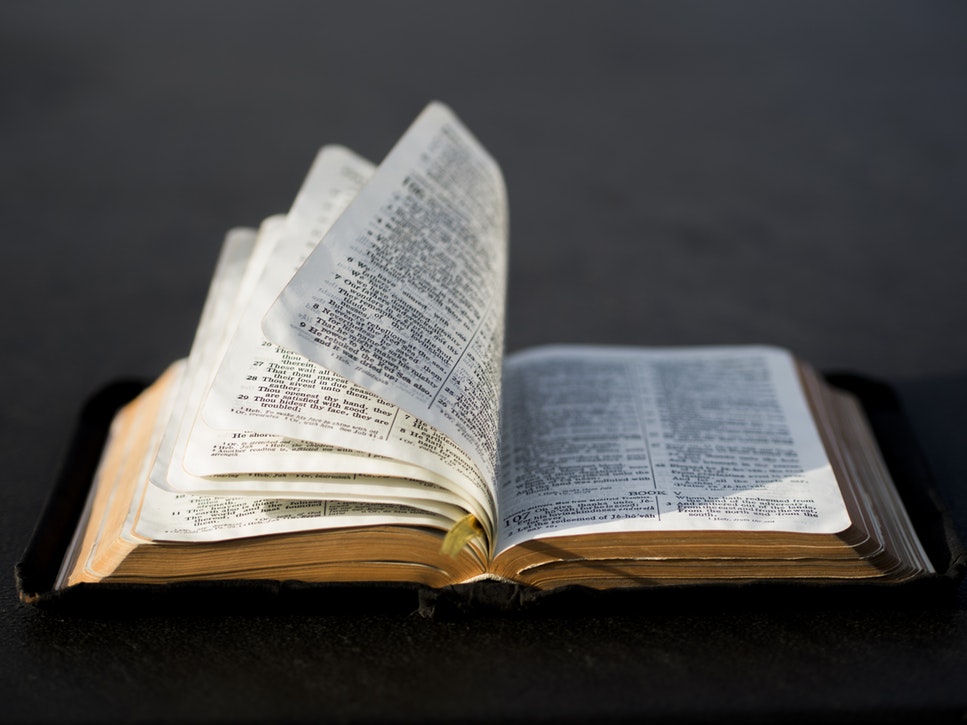“For godly grief produces a repentance that leads to salvation without regret, whereas worldly grief produces death. For see what earnestness this godly grief has produced in you, but also what eagerness to clear yourselves, what indignation, what fear, what longing, what zeal, what punishment! At every point you have proved yourselves innocent in the matter. So although I wrote to you, it was not for the sake of the one who did the wrong, nor for the sake of the one who suffered the wrong, but in order that your earnestness for us might be revealed to you in the sight of God. Therefore we are comforted.”
2 Corinthians 7:10-13
We are called by Jesus Christ to “repent and believe in the Gospel.”1 There is the clear prescription to turn from evil and do good, believing and trusting in the finished work upon the cross. But what does repentance look like? Does the Bible give clear descriptions outside of the prescriptions? How do we take such an abstract idea, and turn this command into concrete action? Praise God for His clear explanations all throughout His word. For, true repentance is found in the likes of Peter, Paul, Hezekiah, Abraham, and a whole host of faithful servants of God. And within the history encased in the Old Testament, the Scriptures give us a distinct example in the comparison and contrast of the first two kings of Israel. The comparison between the man after God’s own heart and the king desired by all the people has essential application to the Christian life.
King David and King Saul each sinned before the LORD, yet their responses when confronted are strikingly different. Whereas David confesses his sins, repents, and offers little to no explanation, Saul’s “confessions” are full of wicked justification for his actions.
Saul, the Proud
In 1 Samuel 15, the LORD commands Saul to utterly destroy the Amalakites. There is no restraining order of pity to be given, rather Saul is to kill “both man and woman, child and infant, ox and sheep, camel and donkey.”2 Saul fails to follow God’s command and spares Agag, the best of the livestock, and goods.3 When Samuel confronts Saul, Saul immediately lies to Samuel’s face. “Blessed be you to the Lord. I have performed the commandment of the Lord.”4
Saul then attempts to explain why they kept the livestock, that they were going to sacrifice them to God, and Samuel rebukes Saul.5 Samuel declares to Saul,
“Has the Lord as great delight in burnt offerings and sacrifices,
as in obeying the voice of the Lord?
Behold, to obey is better than sacrifice,
and to listen than the fat of rams.
For rebellion is as the sin of divination,
and presumption is as iniquity and idolatry.
Because you have rejected the word of the Lord,
he has also rejected you from being king.”
1 Samuel 15:22-23
Now that Saul’s wickedness is exposed, Saul ought to incline his heart to the LORD in true repentance. Yet he fails to properly fall before God.
Saul said to Samuel, “I have sinned, for I have transgressed the commandment of the Lord and your words, because I feared the people and obeyed their voice. Now therefore, please pardon my sin and return with me that I may bow before the Lord.” And Samuel said to Saul, “I will not return with you. For you have rejected the word of the Lord, and the Lord has rejected you from being king over Israel.” As Samuel turned to go away, Saul seized the skirt of his robe, and it tore. And Samuel said to him, “The Lord has torn the kingdom of Israel from you this day and has given it to a neighbor of yours, who is better than you. And also the Glory of Israel will not lie or have regret, for he is not a man, that he should have regret.” Then he said, “I have sinned; yet honor me now before the elders of my people and before Israel, and return with me, that I may bow before the Lord your God.”
1 Samuel 15:24-30
Saul attempts to justify himself. “I feared the people. I obeyed their voice.” He attempts to excuse his sin before Samuel. Saul downplays the severity of his rebellion against the Most High God. Oh, how often do we ourselves do this? In our hearts, we hold onto the reasons for our sin instead of laying those sins at the foot of the cross. This echoes the same justification of sin that Adam gave to God in the Garden. Adam, in his wicked nature, blames God and Eve for his sin!6
The man said, “The woman whom you gave to be with me, she gave me fruit of the tree, and I ate.”
Genesis 3:12
David, the Humble
Contrast this with King David. David, who defiles the marriage covenant between Uriah and Bathsheba, and then kills Uriah the Hittite. He covets, adulterates, murders, and steals. A wicked man, deserving of death. Yet when confronted in his evil act by Nathan, his heart is convicted, and he submits to the LORD, declaring “I have sinned against the Lord.”7
David does not make excuses nor attempt to justify his sin. “She was bathing on purpose where I could see her, she tempted me, Uriah was a foreigner and undeserving of her.” David’s confession goes further in depth in Psalm 51. David cries out to God, declaring his own unrighteousness, and his sin against God. He confesses his bloodguiltiness before God. David does not hide his sin and confession from public witnesses either. He writes a song, that later was spread to all of the people and later shown to be Scripture! Before God and man, David humbled himself to the point of a clear public declaration, “Against you [God], you only, have I sinned, and done what is evil in your sight.”8 As the apostle John says,
If we say we have no sin, we deceive ourselves, and the truth is not in us. If we confess our sins, he is faithful and just to forgive us our sins and to cleanse us from all unrighteousness. If we say we have not sinned, we make him a liar, and his word is not in us.
1 John 1:8-10
Brothers and sisters, there are far more examples of repentance throughout the Scriptures. Do not (in arrogant pride) hide your sins. Confess them to God and the Church, repent, and turn from your evil ways in the manner of King David. When your sin is exposed by a brother, turn to Christ and lay them at His feet. Follow the example of David. I pray for all who read this that God grants the gift of repentance.9
Better is open rebuke
than hidden love.
Faithful are the wounds of a friend;
profuse are the kisses of an enemy.
Proverbs 27:5-6
- Mark 1:15 ↩︎
- 1 Samuel 15:2-3 ↩︎
- 1 Samuel 15:9 ↩︎
- 1 Samuel 15:13 ↩︎
- 1 Samuel 15:15-23 ↩︎
- Note: When I say, “Adam’s sinful nature,” I’m referring to his nature after the Fall, not prior. ↩︎
- 2 Samuel 12:13 ↩︎
- Psalm 51:4 – there are many commentaries throughout history regarding, “Against you, you only.” I will not be addressing that here, as that is beyond the scope and point of this article. ↩︎
- See Acts 5:31; 11:18; 2 Timothy 2:24-25 ↩︎






I appreciate this article David. You did a great job! I like the clear distinction between David and Saul’s responses.
Thanks Jason!